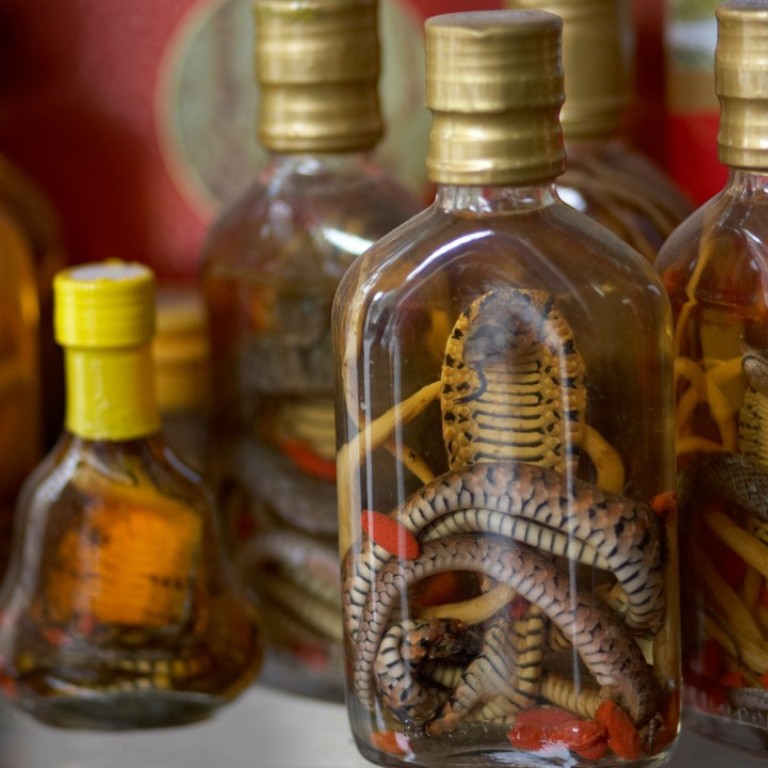
Vietnam’s famous alcohol aphrodisiac can boost your sex drive – but do you have any idea what’s in it?
Ruou thuoc is said to have healing properties, from reducing aches to improving virility, but choose your brew with care. Do you really want to support the illegal trade in wildlife parts by having one containing cobra blood or bear paw?
“Wait a minute. Did you say snake blood?”, Leonardo DiCaprio says in the opening scene of the film The Beach, just after his arrival in Thailand’s capital, Bangkok. He then takes the challenge, and slams down a shot of alcohol mixed with snake blood offered to him by strangers.
The 2000 film certainly helped to hype the drink among visitors to Southeast Asia. Seven years ago, Michelin-starred chef Gordon Ramsay swallowed the still-beating heart of a cobra at a restaurant in Vietnam for his television series Gordon’s Great Escape.
Business is writhing in a Chinese village charmed by 3 million snakes
The activity, an exotic dare for young, thrill-seeking travellers, became so popular that tours to snake restaurants are offered to backpackers in Hanoi. In those restaurants, waiters slit the snake open alive at the table to extract the heart, blood and bile and mix them with rice liquor.
The drink, ruou thuoc, is believed to enhance virility – “one night five times”, as Ramsay’s hosts at the restaurant said.
Is this a fun way to experience authentic Vietnamese culture? “Most Vietnamese have probably never eaten a snake, let alone drunk its blood,” says Tuan Bendixsen, Vietnam director of the animal welfare NGO Animals Asia Foundation. “It is not a significant part of our culture, and the fact that it survives at all is largely down to the tourist trade.”
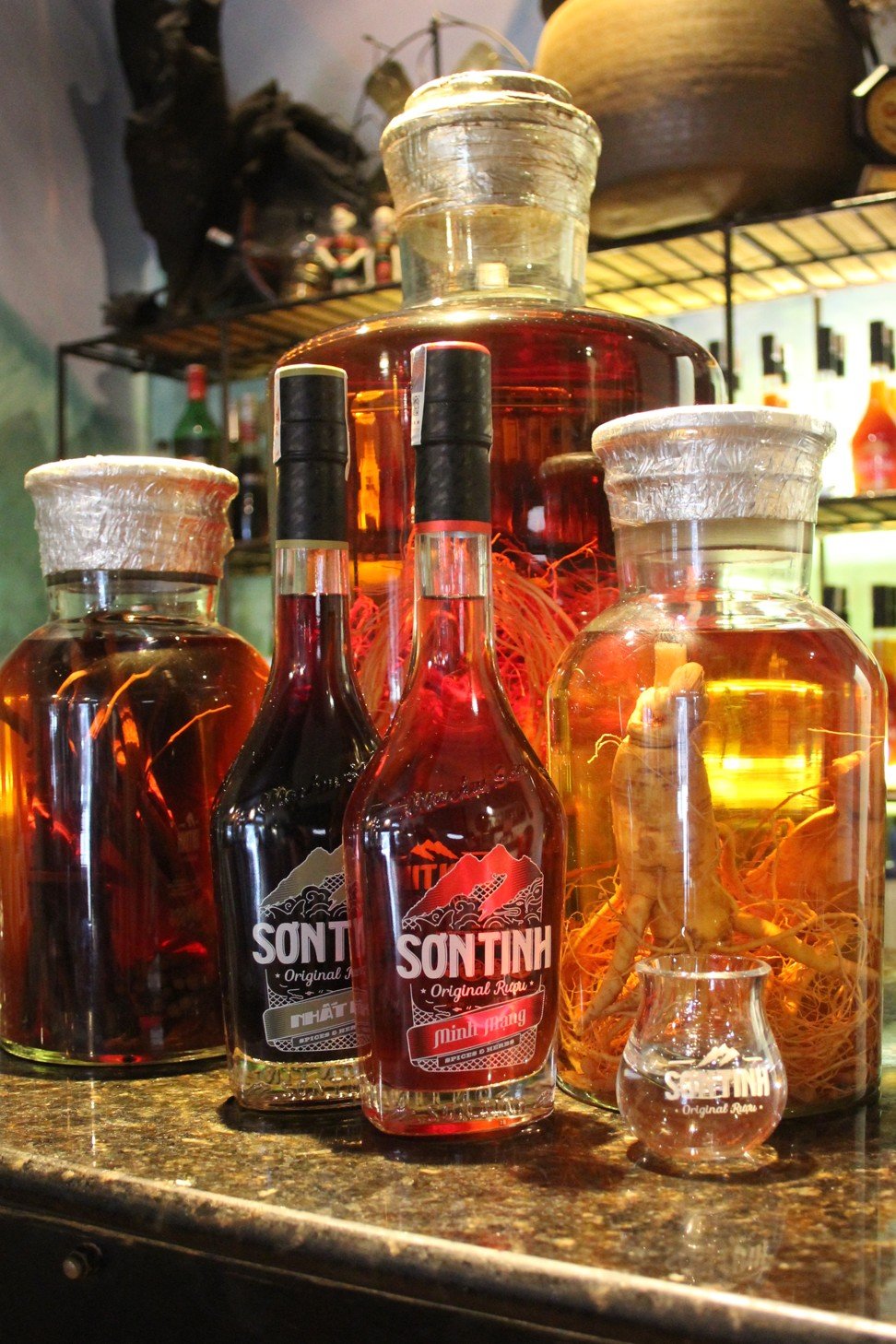
Animals Asia advises Vietnam visitors not to eat snake or drink snake blood or bile to avoid causing animal cruelty and fuelling the consumption of wildlife.
Even if a restaurant claims its snakes are farmed, differentiating farmed snakes from those caught in the wild would be extremely difficult. More than 20 snake species in Vietnam are protected, among them four cobra species.
Besides, consuming snake-infused alcohol and snake bile could undermine the NGO’s efforts to limit the use of animal parts for medicinal purposes. Animals Asia’s focus is on ending the use of bear bile in traditional medicine.
Asian black bears are a protected species in Vietnam, but bear paws and parts of other endangered animals can still be found infused in rice liquor, the consumption of which is touted to achieve anything from improved general health and virility to reduced aches and pains.
“I have seen a whole bear cub in a big tub of rice wine in a private home in Central Vietnam some years ago,” says Bendixsen. “If we find a restaurant or an establishment displaying protected species infused in rice alcohol, we complain in writing to the local authority to intervene and confiscate.
“Vietnam’s Traditional Medicine Association does not support the use of endangered wildlife products. They work with us on promoting herbal alternatives.”
Most Vietnamese have probably never eaten a snake, let alone drunk its blood. It is not a significant part of our culture
The wildlife crime unit of NGO Education for Nature Vietnam (ENV) has also been addressing violations in which protected species are sold for consumption.
“Responsiveness by enforcement agencies has increased significantly over the past 13 years of direct engagement on more than 12,500 cases”, says Douglas Hendrie, technical adviser to ENV.
“However, endangered-species-in-wine violations do not tend to get the same aggressive response that a live animal or large-volume crime would.”
Endangered species such as the Asian black bear, the Indochinese tiger and both the pangolin species native to Vietnam are protected under Vietnamese law.
Even if you do not know the conservation status of a creature you come across floating in alcohol, Bendixsen warns tourists against consuming wildlife-infused ruou – for health and safety reasons alone: rice liquor, he says, contains only 30-40 per cent alcohol or ethanol, not enough to stop viruses, bacteria or other nasties. Reptiles carry salmonella, which can be contracted by ingesting raw snake.
There are plenty of alternative virility boosters out there anyway. In Hanoi’s bustling Old Quarter, restaurant Highway4 is known for its ruou brand Son Tinh, which comes in 12 flavours, and sophisticated bottles – all of them purely herbal.
One of their flavours is called Nhat Da, or “One Night”. Its numerous ingredients give a bittersweet taste, with notes of pinewood resin, coffee, celery and berries – along, supposedly, with the power to stimulate certain lower body parts.
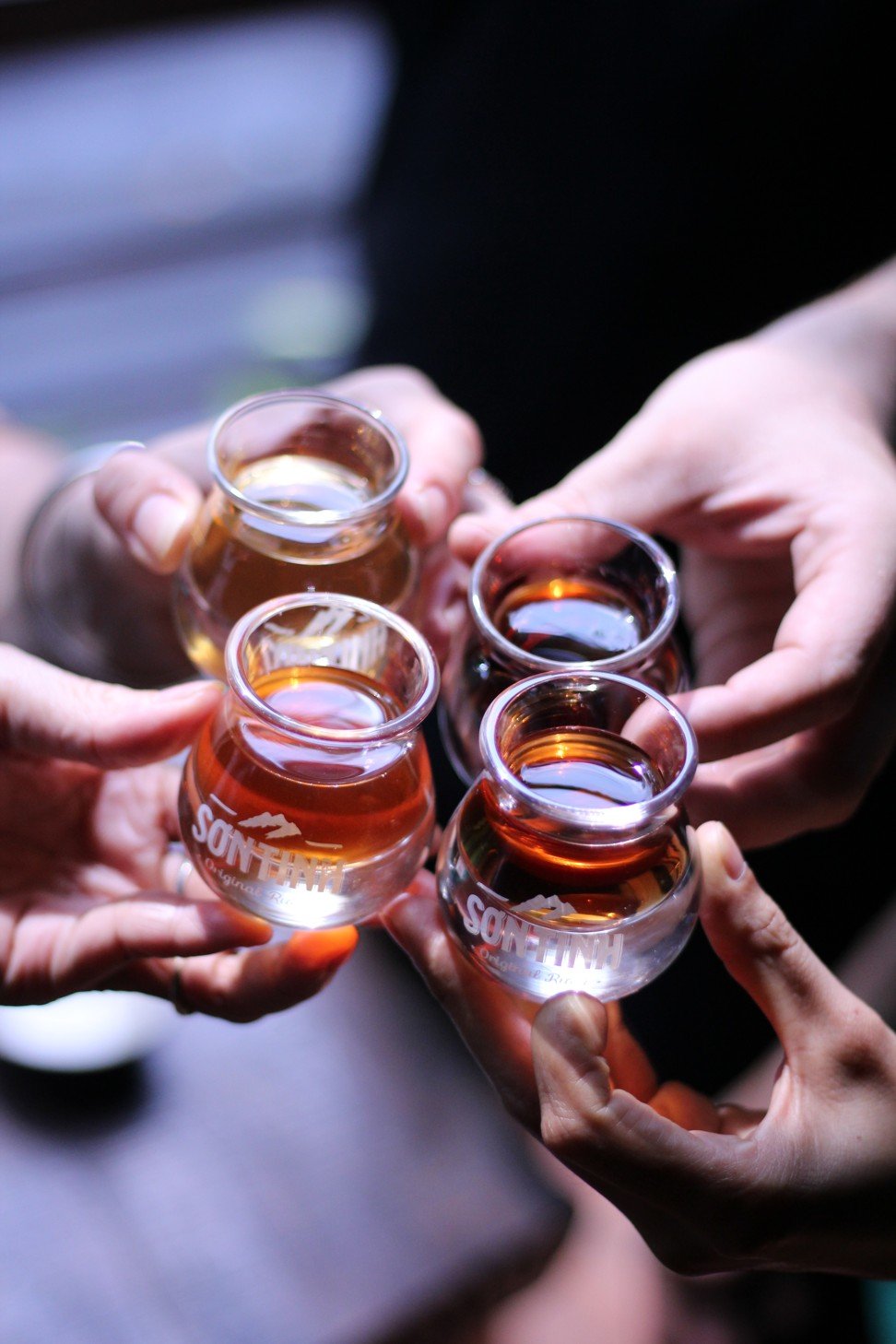
Another of Son Tinh’s ruou, named Minh Mang after an emperor said to have fathered 142 children, is infused with 19 different herbs, and tastes slightly smoky – neither too sweet nor too spicy.
“This recipe I bought at an institute for traditional medicine 20 years back, and modified it over the years to make it more tasty,” says Son Tinh founder Markus Madeja. “We do not sell our ruou flavours as medicine, but in the end they are medicinal – inspired by traditional recipes.”
Hong Kong’s most venomous creatures – beware, some can kill
Vietnamese indigenous herbology evolved over thousands of years, influenced by traditional Chinese medicine. The Vietnamese adapted it according to their region, people and local ingredients – it was termed thuoc nam, or Southern Medicine.
“Today people are taking modern drugs and pills from the pharmacy, but for minor ailments most Vietnamese still use traditional remedies,” Madeja says.
“These are usually grandma's recipes, passed down the generations. The fundamentals of traditional medicine are common knowledge in everyone's daily life up until today.”
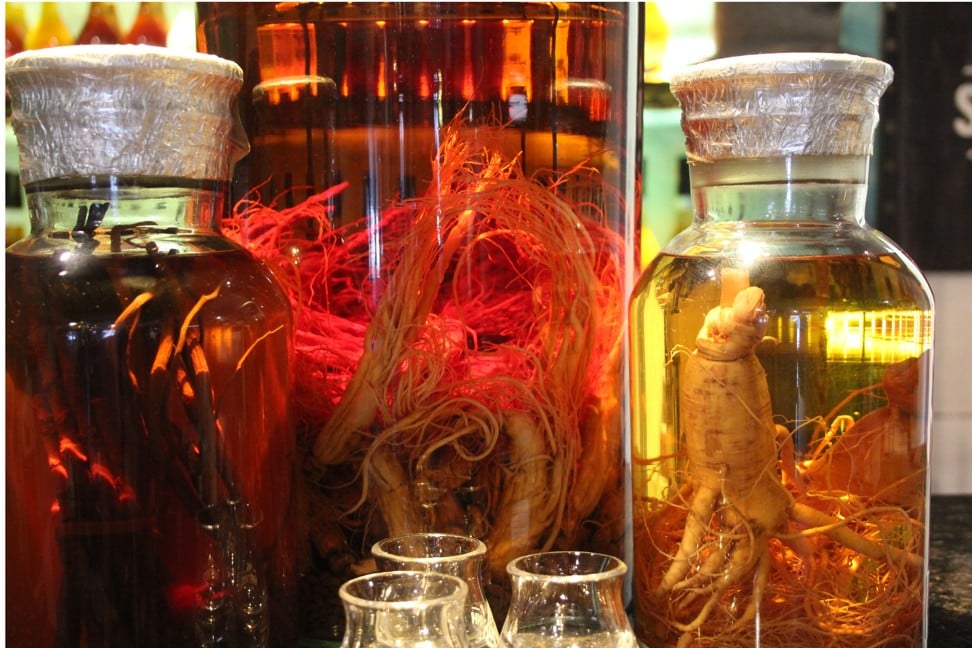
Swiss-born ethnologist Madeja has been living in Vietnam for more than 20 years. His wife, Vu Thi Thoa, was born in Phu Loc, a village known for its centuries-old tradition of producing rice spirit.
Madeja acquired a taste for it, adjusted the villagers’ traditional way of ruou production, and began distilling his own sticky rice liquor at home in Hanoi, infusing it with traditional herbs and local fruit.
Today the husband-and-wife team own four restaurants and a large distillery on the outskirts of Hanoi. Son Tinh translates to “essence of the mountains”, and is a reference to Vietnam's Northern highlands, the source of countless raw ingredients that bear the secrets of traditional medicine.
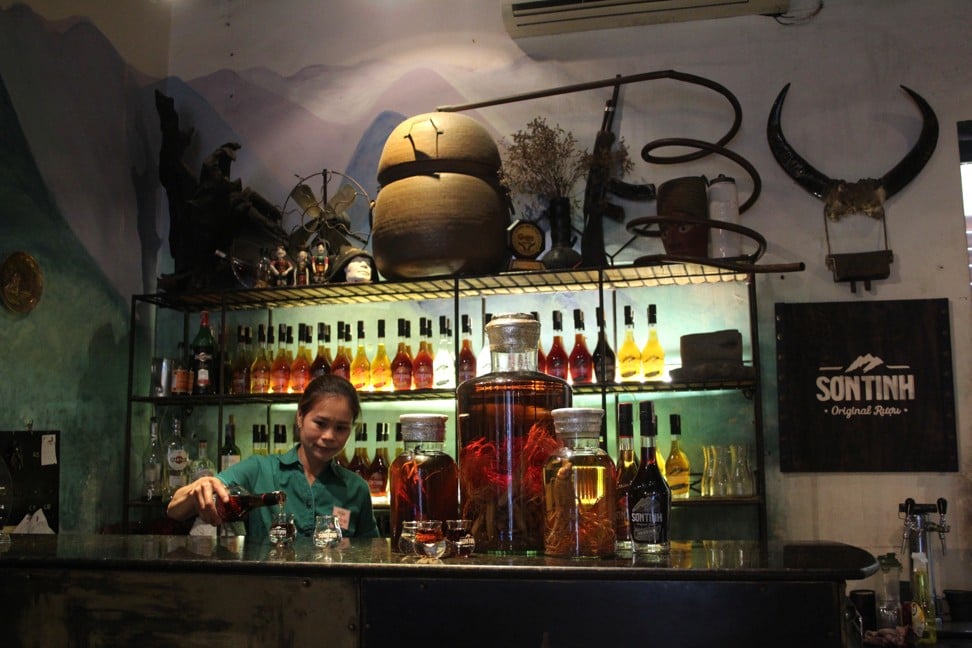
I have seen a whole bear cub in a big tub of rice wine in a private home in Central Vietnam
Son Tinh stopped infusing its ruou with animals about a decade ago. Although Madeja acknowledges seahorses, snakes, scorpions and the like (often of unclear origin) are still consumed in places, he sees animal-infused spirits declining, as awareness of biodiversity loss increases among younger generations.
To Madeja, traditions are not static. “Preferences, attitudes, mentalities and situations in society change – and therefore so do customs.
Traditional medicine has been adapting for 2,000 years – and in that lies its future. Traditions have to keep up with the times – otherwise they die.”
Does ruou thuoc live up to its promise? Does the liquor-soaked magic really work? “Of course,” says Madeja. “It's not for nothing the Chinese are spearheading medical research in many areas.”
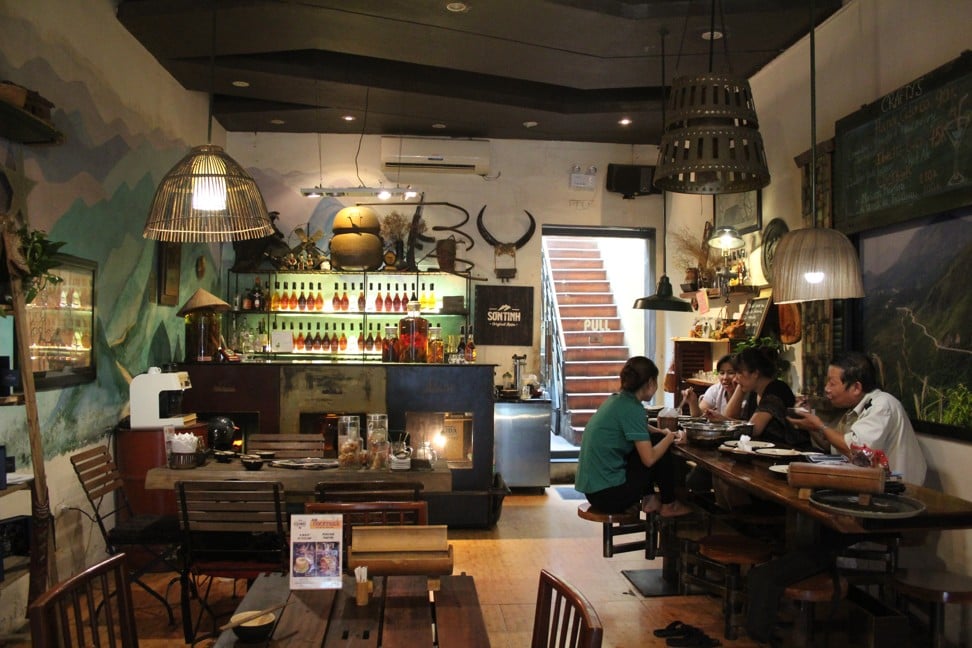
Vietnamese rice liquor: what’s in your drink
Ruou, Vietnamese rice liquor, is often falsely translated as “rice wine”, but it is distilled, therefore it is a spirit.
Rice liquor infused with herbs, fruit or animals is said to have the health benefits of traditional medicine, but in Vietnam it is often simply enjoyed over dinner with friends.
Most Vietnamese families keep some of their hometown’s traditional flavours for guests. Ruou is usually drunk straight, out of shot glasses or small cups, bottoms up.
Animal welfare groups advise tourists not to consume ruou containing wildlife products, since many animal species are endangered and protected under Vietnamese law. By doing so you could also be fuelling the demand for illegal wildlife trade.
Veteran snake handler gives Hongkongers health-giving soup
